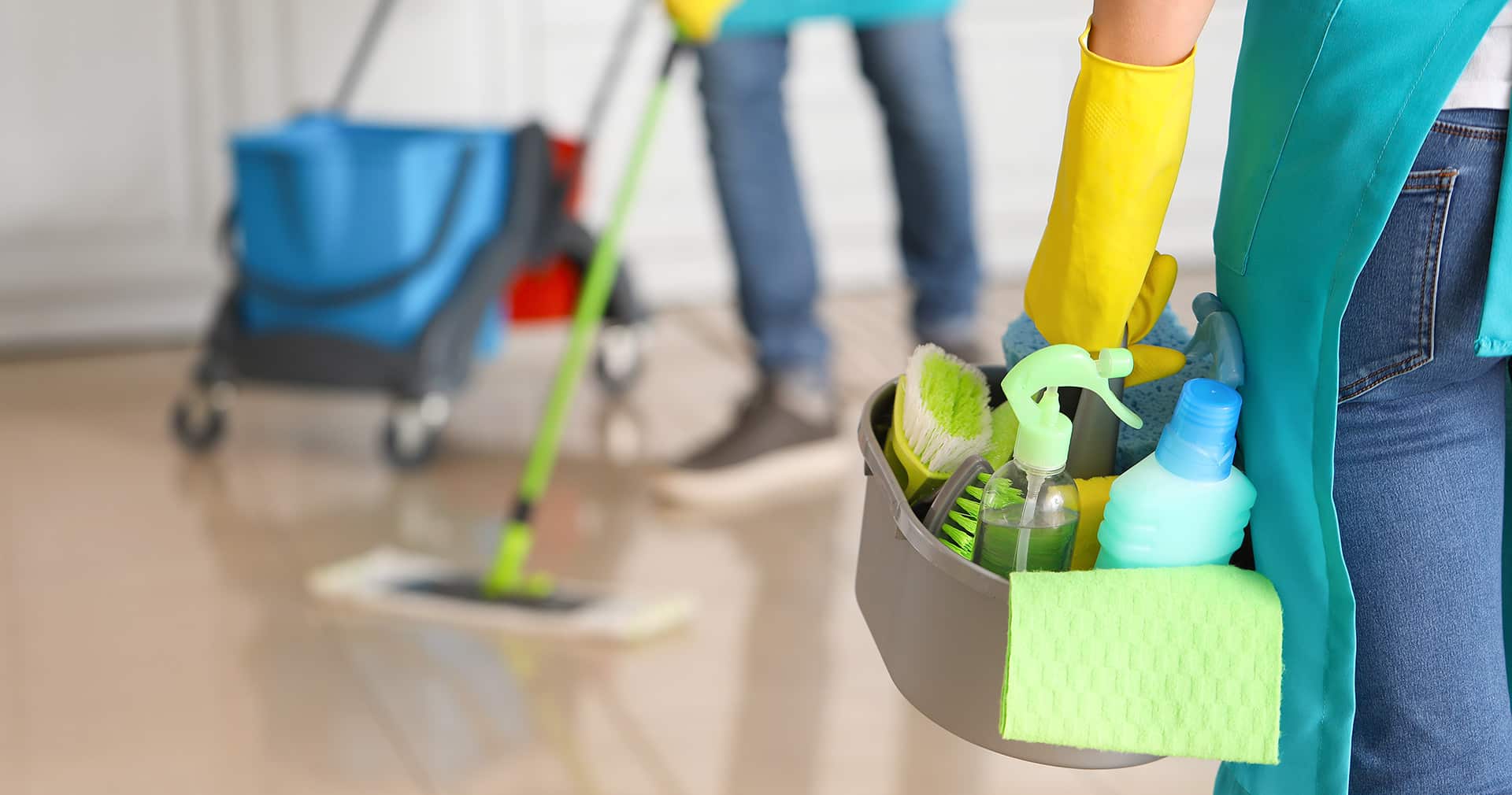Commercial Plumbing vs. Residential Plumbing
The difference between commercial and residential plumbing comes down to two things: the types of clients they serve and the buildings they work on. In this article, we’ll explore both.

Staff Contributor
Plumbing is an essential service that every person needs at some point, including both home and business owners. Some plumbing companies cater to homeowners, while others focus exclusively on commercial properties.
Let’s explore the major differences between commercial plumbing and residential plumbing as well as which one is more profitable.
Commercial plumbing vs. residential: What’s the difference?
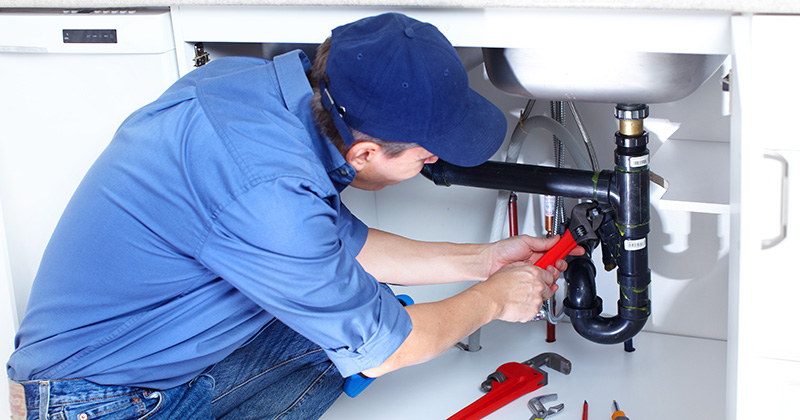
The difference between commercial and residential plumbing comes down to two things: the types of clients they serve and the buildings they work on.
A commercial plumber, as the name implies, works on commercial buildings. A residential plumber, you guessed it, works on plumbing systems found in the home.
Let’s dig into the differences in more detail.
What is commercial plumbing?
Commercial plumbing companies provide plumbing services to clients operating in a commercial environment—think office buildings, medical and healthcare facilities, gyms, restaurants, and malls.
Because of the size and nature of commercial buildings, these plumbers typically deal with larger and more complex pipes and plumbing systems. Commercial plumbers need specialized knowledge in areas such as hydronics and industrial waste management.
In addition, their workmanship may be subject to stricter rules and regulations, which generally vary from state to state.
Commercial plumbers are affected by other requirements, too. They may work outside of normal business hours to minimize disruption to employees, customers, and the public.
They might need specific immunizations to operate in regulated environments, such as hospitals. They may also have a higher level of insurance coverage.
What is residential plumbing?
Residential plumbers provide services to property owners, managers, landlords, and renters. They work on residential buildings, such as:
- houses
- townhouses
- apartments
- condominium units
- new construction
In some cases, residential plumbers cover the plumbing needs of small residential complexes. Though, despite working on a smaller scale, residential plumbers must also be insured and licensed.
Residential plumbing is more straightforward. A plumber can resolve issues faster, as there are fewer systems at play. However, some properties—especially older homes—hold a complex patchwork of a plumbing system.
The plumbing in some homes isn’t up to standard. And incredibly, up to half a million US households lack indoor plumbing, many of which are located in urban areas.
How do installation, maintenance, and repairs differ between commercial and residential plumbers?
Plumbing basics like broken toilets, blocked drains, and damaged pipes don’t discriminate between residential and commercial plumbing businesses.
However, several factors affect the installation, maintenance, and repair processes. these differ significantly between commercial and residential plumbing systems.
Here are some of the factors that differentiate commercial and residential installation, maintenance, and plumbing repairs.
Building size
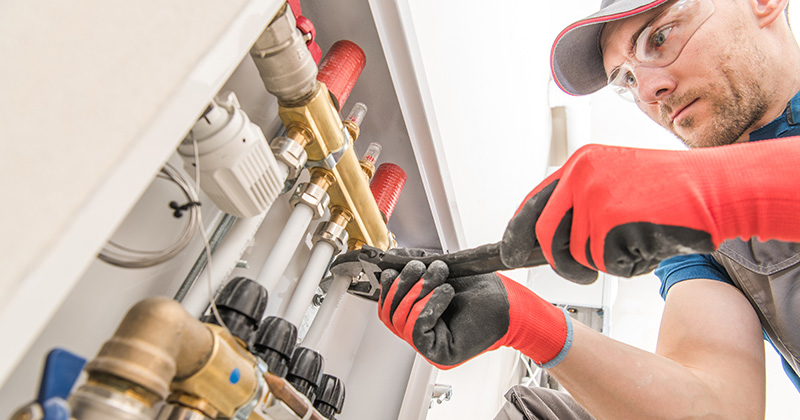
The bigger a building and the more people that use it, the more sinks, toilets, and pipes are needed. Commercial plumbers deal with significantly larger properties with many more fixtures.
And that can make installations, maintenance, and plumbing repairs more frequent and more difficult to carry out. In addition, a larger building with several fixtures is more likely to experience plumbing emergencies than a residential building.
Larger buildings need intensive routine maintenance to keep employees, visitors, and other occupants safe and happy. Plumbers may need specialized tools or techniques to successfully navigate the building’s complexities and limitations.
If a plumber spots signs of a fault or damage, locating the source of the issue can be a time-consuming process that demands know-how and expert equipment.
Drainage
In a residential setting, plumbers typically use a drain snake to overcome blockages in shower drains, kitchen sinks, sewer lines, etc. Sometimes, the process can prove a challenge.
But even if they encounter a more significant issue such as root intrusions, they can still remedy the situation and make a full repair.
The same cannot always be said for commercial properties. In a high-rise building, for example, snaking a drain may not be adequate.
Sometimes, the plumber will need to clear all drain clogs throughout the line. Missing one could result in flooding on the floors below.
Water pressure
In a residential context, plumbers can identify the cause of poor water pressure by testing each fixture within the home. Then, they can make a suitable repair, such as fixing the main water supply valve.
The task becomes a little more complex within multi-story commercial buildings. The water pressure must be strong enough to propel the water through the pipe system and up to the top floor.
However, too much pressure could overload fixtures on the lower floors. This can result in damage as well as non-compliance with the National Standard Plumbing Code and other regulations.
What kinds of problems do commercial and residential plumbers solve?
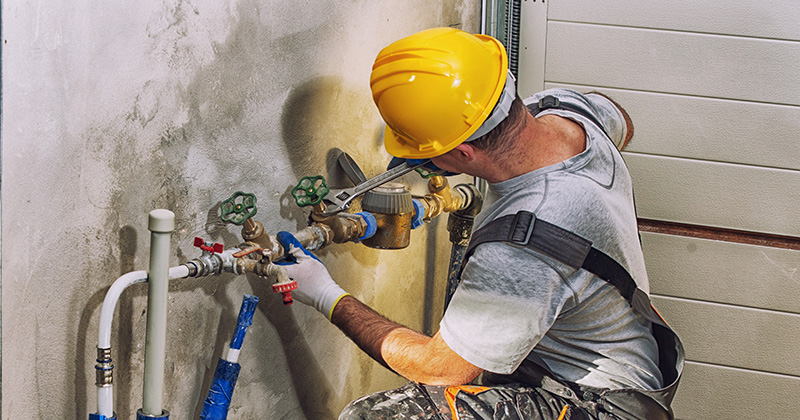
Commercial and residential plumbers have many of the same tasks and duties. What really differentiates the two professions are the size, scope, and nature of the building.
Some of the problems both commercial and residential plumbers solve include:
- Clogged drains, causing water to drain slowly or not at all. Toilets may also become clogged. The process of clearing the blockage will depend on the cause of the clog, building size, and plumbing system.
- Leaks, which might result in dripping faucets and showers. In both residential and commercial settings, leaking faucets and pipes can increase water bills significantly. The average household leak wastes almost 10,000 gallons of water.
- Hot water issues, like a shower gone cold or a restaurant’s dishwasher failing to heat up. Water heaters can break, malfunction, or die after years of use. Plumbers troubleshoot the issue and decide whether to repair or replace it.
- Plumbing emergencies, including burst pipes and overflowing toilets. These urgent situations require a prompt and thorough response, regardless of the environment.
- New build installations, which might include working directly with a construction company. Plumbers establish the building’s pipe works and connect them to the sewer, storm drain, and other systems. Then, they’ll install brand-new fixtures.
Some commercial plumbing businesses have a specialized area of expertise. For example, mechanical services plumbers complete underground works, gas piping, sprinkler installations, commercial boiler installations, and other niche services.
Is residential or commercial plumbing more profitable?
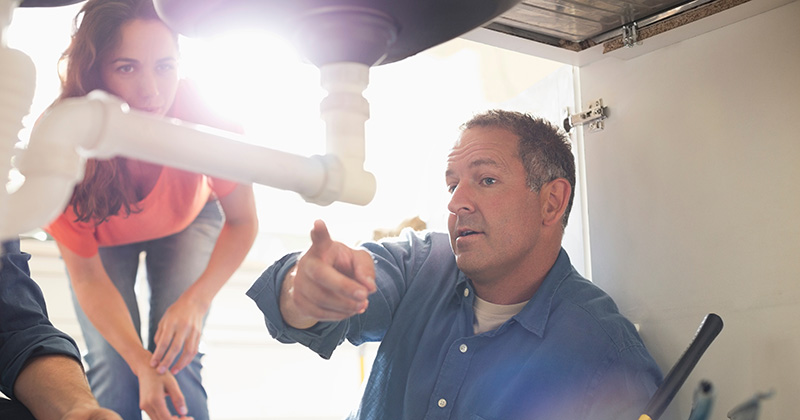
If you are a current or aspiring business owner, you might be wondering whether to focus your efforts on commercial or residential plumbing services. There’s no one-size-fits-all answer, as both have pros and cons.
Residential plumbing is less complex. And starting a residential plumbing company requires a smaller upfront investment. You will need fewer specialized tools and a less extensive insurance policy. On the flip side, your earning potential is not as high.
In contrast, commercial plumbing is complicated and requires extensive training and special equipment. It may not be financially viable to start a commercial plumbing company able to compete with big-name businesses.
28% of the companies that hire commercial plumbers have between 1,000 and 10,000 employees—only 11% have fewer than 50.
However, if you have experience and a client base in the commercial plumbing space, your earning potential could be significant. It depends on your skill level, confidence, financial backing, and long-term goals.
If you are looking for a middle ground, starting with residential clients is probably your best bet and will drive the most profit short-term.
As you build a reputation in your community, you can open your services to commercial clients. Eventually, you might phase out your residential services altogether.
Now’s the time to break into the plumbing industry
In May 2022, the number of new homes under construction rose to 1.67 million, the highest figure in government data back to 1969.
At the same time, commercial building plumbing systems are being strained as workers are returning to offices, tourists are traveling again, and people are venturing out into the public.
So, whether you opt for the residential or commercial route, the demand for your services is going nowhere fast. Now’s the time to make your mark on the industry. Here are a few specific ways you can get started:
- Research the demand for residential and commercial plumbing services in your area. This will give you an idea of which type of service is more likely to generate customers in your community.
- Identify local competitors, including those offering both residential and commercial services. It’s important to get an idea of what kind of competition your business will be up against.
- Consider pricing differences between residential and commercial clients. When your setting prices, it’s important to consider how much businesses and homeowners are willing and able to pay for quality workmanship and customer service.
- Think about which type of service would most suit your skillset. Do you love tackling complex problems? Or do you prefer working on smaller-scale projects? Consider what type of plumbing services best align with your skills and interest.
Raina has a way with words—especially content that’s witty and relatable. When she’s not knee-deep in content requests, you'll find her doing her latest hyper fixation hobby, dancing (music totally optional), or laughing at her own jokes.

Business Solutions For Field Service Pros
EverPro offers specialized solutions designed for home and field service professionals. We’ve got the business tools to help you get the job done.
